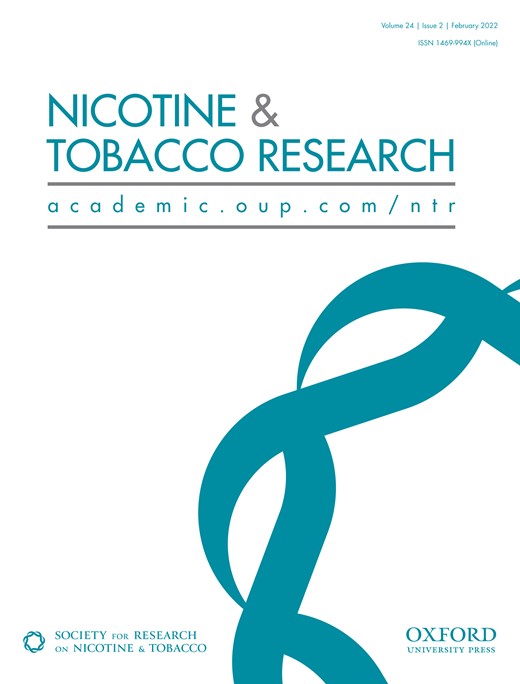-
Views
-
Cite
Cite
Donna Shelley, Charles M Cleland, Trang Nguyen, Nancy VanDevanter, Nina Siman, Hoang Van Minh, Nam Nguyen, Effectiveness of a Multicomponent Strategy for Implementing Guidelines for Treating Tobacco Use in Vietnam Commune Health Centers, Nicotine & Tobacco Research, Volume 24, Issue 2, February 2022, Pages 196–203, https://doi.org/10.1093/ntr/ntab189
Close - Share Icon Share
Abstract
Strategies are needed to increase implementation of evidence-based tobacco dependence treatment (TDT) in health care systems in low-and middle-income countries (LMICs).
We conducted a two-arm cluster randomized controlled trial to compare the effectiveness of two strategies for implementing TDT guidelines in community health centers (n = 26) in Vietnam. Arm 1 included training and a tool kit (eg, reminder system) to promote and support delivery of the 4As (Ask about tobacco use, Advise to quit, Assess readiness, Assist with brief counseling) (Arm 1). Arm 2 included Arm 1 components plus a system to refer smokers to a community health worker (CHW) for more intensive counseling (4As + R). Provider surveys were conducted at baseline, 6 months, and 12 months to assess the hypothesized effect of the strategies on provider and organizational-level factors. The primary outcome was provider adoption of the 4As.
Adoption of the 4As increased significantly across both study arms (all p < .001). Perceived organizational priority for TDT, compatibility with current workflow, and provider attitudes, norms, and self-efficacy related to TDT also improved significantly across both arms. In Arm 2 sites, 41% of smokers were referred to a CHW for additional counseling.
The study demonstrated the effectiveness of a multicomponent and multilevel strategy (ie, provider and system) for implementing evidence-based TDT in the Vietnam public health system. Combining provider-delivered brief counseling with opportunities for more in-depth counseling offered by a trained CHW may optimize outcomes and offers a potentially scalable model for increasing access to TDT in health care systems like Vietnam.
Improving implementation of evidence-based TDT guidelines is a necessary step toward reducing the growing burden of noncommunicable diseases and premature death in LMICs. The findings provide new evidence on the effectiveness of multilevel strategies for adapting and implementing TDT into routine care in Vietnam and offer a potentially scalable model for meeting Framework Convention on Tobacco Control Article 14 goals in other LMICs with comparable public health systems. The study also demonstrates that combining provider-delivered brief counseling with referral to a CHW for more in-depth counseling and support can optimize access to evidence-based treatment for tobacco use.
Clinical trials number: NCT01967654.
- nicotine dependence
- patient referral
- attitude
- community health workers
- community health centers
- counseling
- developing countries
- reminder systems
- self efficacy
- vietnam
- arm
- guidelines
- public health medicine
- tobacco use
- health care systems
- evidence-based practice
- death, premature
- workflow
- evidence-based treatment
- tobacco control
- primary outcome measure
- smokers
- noncommunicable diseases






Comments